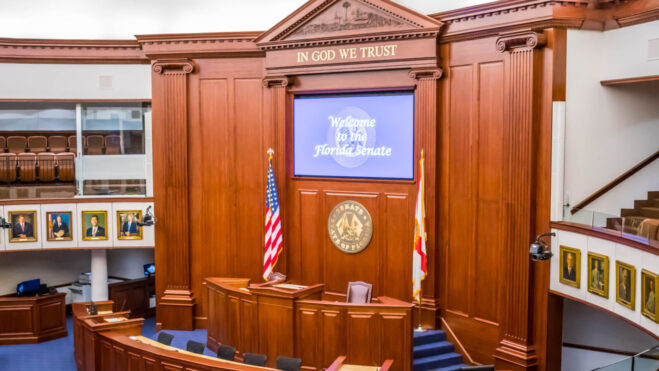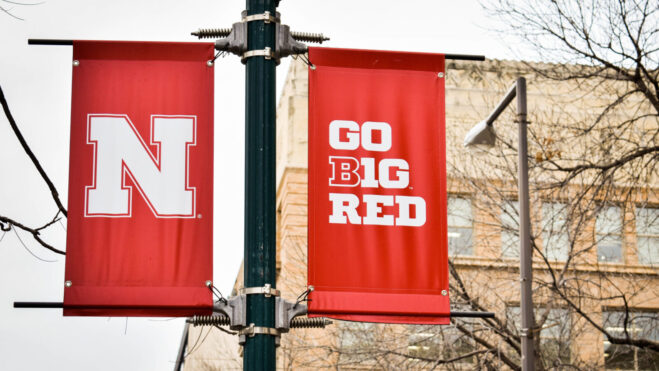DoJ Crackdown On Missouri Sweepstakes Operation Hints At Broader Federal Interest, Action
The DoJ might be ready to start targeting the sweepstakes casino ecosystem
2 min

The U.S. Department of Justice (DoJ) recently secured guilty pleas from two individuals involved in a sweepstakes gambling operation in Missouri. Some industry insiders believe that this might be just the start of a larger federal initiative targeting the sweepstakes gambling market.
In early July, Kevin Brandes and William Graham pleaded guilty to conspiring with bank officials to bypass anti-money laundering (AML) obligations mandated by the Bank Secrecy Act (BSA). This case has prompted speculation that a broader crackdown on sweepstakes operators may be on the horizon, according to sources cited by Compliance + More.
The DoJ revealed that Brandes and Graham ran several sweepstakes companies involved in a scheme to help bank personnel circumvent critical components of the institution’s AML program. Under the BSA, financial institutions are required to report currency transactions over $10,000 to the U.S. Treasury’s Financial Crimes Enforcement Network (FinCEN). However, at the behest of the bank, Brandes and Graham misrepresented their businesses as “direct mail advertising” companies in FinCEN filings to avoid this requirement.
The fraudulent activities also included actions taken in 2016 when Brandes and Graham, following the bank’s instructions, arranged for an external attorney to sign a legal opinion that contained false information. This letter stated that one of their companies had not faced any legal actions from regulatory agencies or private parties. In truth, they were aware that a state regulatory body had already initiated legal proceedings against the business, but they deliberately withheld this information from the bank.
The guilty pleas mark a significant victory for the DoJ in its efforts to crack down on financial crimes related to sweepstakes operations. However, according to Compliance + More, this case may also foreshadow a more coordinated federal effort against sweepstakes operators and other quasi-gambling mechanisms.
Slippery slope for sweepstakes
Sweepstakes casinos operate differently from traditional gambling establishments. Unlike regulated casinos, where participants bet money on games of chance, sweepstakes casinos use a loophole to offer games that resemble gambling but are technically structured as promotional sweepstakes.
In these operations, participants often buy a product or service—such as prepaid phone cards or online currency—and receive entries into sweepstakes-style games as a bonus. While these games closely mimic slot machines or other casino games, the legal distinction is that players are not directly wagering money on the outcome of the game itself.
The legal gray area surrounding sweepstakes casinos has allowed many of these operators to skirt gambling laws in various states. However, the DoJ’s action against Brandes and Graham has highlighted the increasing scrutiny of this sector. The focus on AML violations suggests that federal authorities may be looking for ways to hold sweepstakes operators accountable through banking regulations, even if their operations do not fall squarely under traditional gambling laws.
Delaware becomes sweeps operator hunting ground
One industry insider noted that many sweepstakes companies are incorporated in Delaware, making them more accessible to federal authorities. “That makes them easier to go after,” the source said, suggesting that the Missouri case may be the first step in a broader federal effort. “This shows there is a team, and they are getting their act together,” the source added.
The Missouri case comes amid a growing wave of enforcement actions targeting sweepstakes and social casino operators. For instance, in Michigan and Delaware, state authorities issued cease-and-desist orders against VGW, the operator of sweepstakes platform Chumba Casino and others.
VGW is also facing a class action lawsuit in Georgia, where plaintiffs allege that the company’s offerings constitute illegal gambling under state law. Similar lawsuits have been filed against social casino operators in Washington and Kentucky.
Legal experts are advising operators of social casino games and sweepstakes casinos to closely monitor these developments. A recent memo from the American Gaming Association (AGA) warned against products that “threaten consumers and undermine gaming regulations.”






